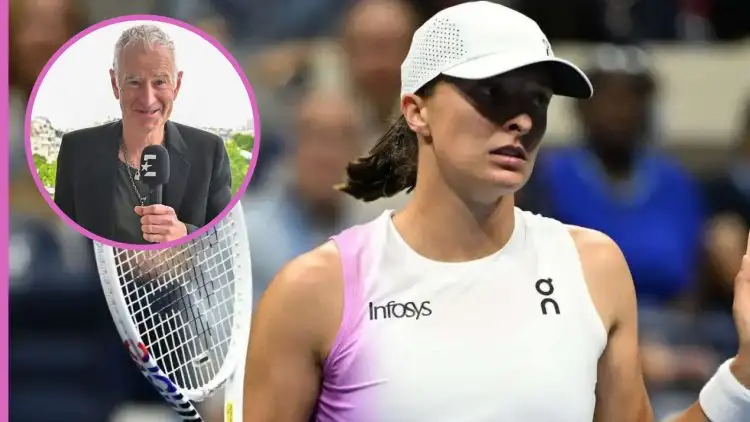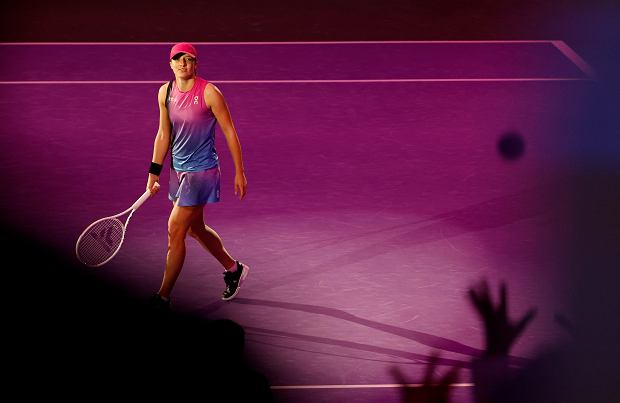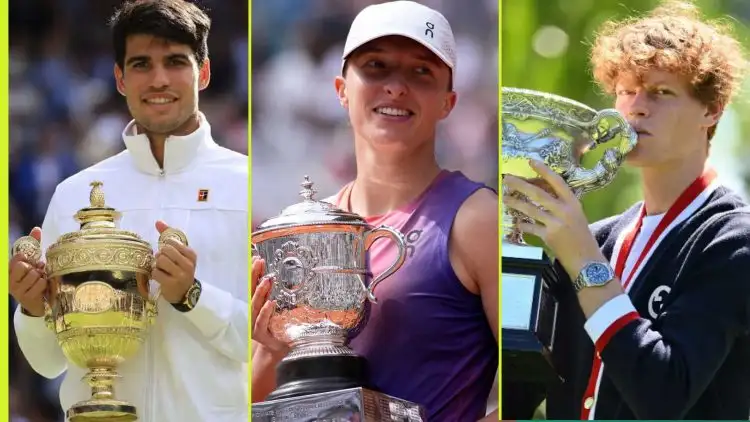John McEnroe highlights Iga Swiatek’s biggest flaw and urges her to adapt
Iga Świątek has firmly established herself as the undisputed world No. 1 in women’s tennis, yet tennis legend John McEnroe believes there’s still an essential area of her game that needs improvement. Despite Aryna Sabalenka securing two Grand Slam titles in 2024, Świątek has maintained a comfortable lead at the top of the WTA rankings….
Iga Świątek has firmly established herself as the undisputed world No. 1 in women’s tennis, yet tennis legend John McEnroe believes there’s still an essential area of her game that needs improvement. Despite Aryna Sabalenka securing two Grand Slam titles in 2024, Świątek has maintained a comfortable lead at the top of the WTA rankings. However, her recent quarter-final defeat against Jessica Pegula at the US Open has reignited debates over her tactical approach.
Świątek’s aggressive, all-out attacking style has helped her dominate most of her rivals, but some cracks in her game have become apparent. Speaking at a Eurosport event, McEnroe highlighted that for Świątek to become an even more formidable player, she must improve her defensive game to complement her powerful offensive style.
“One issue for me is that she doesn’t want to play defense at all,” McEnroe said. “There are moments when she should pull back, especially when her offensive game isn’t performing as well as it can on clay. Yet, she keeps pressing, which is surprising for someone who thrives on slower surfaces.”
McEnroe expressed surprise that Świątek has not adapted her game for faster surfaces, where adjustments are crucial. He speculated that this reluctance to change might be due to a dip in confidence. However, he pointed out that if Świątek can combine solid defense with her strong attacking game, she would be incredibly difficult to beat.
“I was a little surprised that she is either unwilling or unable to make adjustments on the faster surfaces. I don’t know if it’s a confidence issue, but seeing someone like Iga digging in defensively as well as offensively would make her even tougher to beat,” McEnroe added. “She’s young, though, and hopefully, she’ll make that adjustment in time and work on her net game as well.”
McEnroe also suggested that Świątek’s early exit at the US Open could be linked to her participation in the Olympic Games, as many players who competed in Paris have struggled in subsequent tournaments. Świątek herself has called on tennis organizers to modify the demanding schedule, citing the need for more rest during the season. McEnroe speculated that external pressures, such as sponsors and obligations to the WTA Tour, might be factors in her decision-making.
“You can see that many players who were at the Olympics are struggling, both physically and mentally,” McEnroe said. “It’s tough to move from clay to grass, then back to clay for the Olympics, and immediately switch to hard courts. That transition is far from easy.
“Take a look at the players who won medals at the Olympics; many of them exited the US Open early, particularly in the men’s draw. Jessica Pegula, who skipped the Olympics, found her rhythm on the hard courts, while for Iga, it was much tougher.”
McEnroe acknowledged that he’s not intimately familiar with Świątek’s inner circle or her precise needs but recognized her greatness as a player. He encouraged her to reflect on her career achievements and perhaps reconsider her scheduling strategy in the future.
“She’s had an incredible career already, and she’s only going to get better,” McEnroe said. “I’m not sure if she has to play certain events because of sponsor commitments, but maybe at some point, she needs to take a step back and appreciate what she’s accomplished.
“Iga should recognize her success and remember that she’s still young. She’s going to be around for many years, and there’s so much more she can achieve.”
Świątek is scheduled to compete in the upcoming WTA Tour events in China and Japan, with her much-needed break unlikely to come until after the WTA Finals in Saudi Arabia in November.

![WTA Finals: Coco Gauff – Qinwen Zheng [RELACJA NA ŻYWO]](https://news-break.co.uk/wp-content/uploads/2024/11/Screenshot_2024_1109_170841.png)



![Polka gra o finał w Chinach! Jest w świetnej formie [WYNIK NA ŻYWO]](https://news-break.co.uk/wp-content/uploads/2024/11/katarzyna-piter2.avif)
